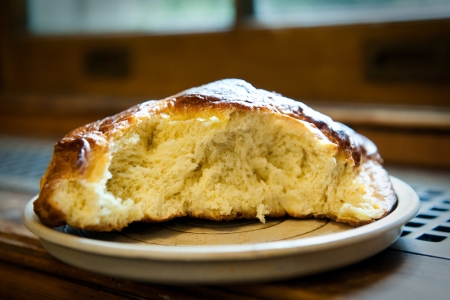Introduction
The traditional mitzvah of hafrashat challah (“taking” or “separating” challah) refers to removing and burning a small piece of challah dough as a symbolic offering before baking (some people throw away that piece instead of burning). In the time of the ancient temple in Jerusalem, the Israelites would give challah as an offering to the kohanim (priests). This mitzvah created a connection between groups of people who had separate roles in society, and brought holiness to a mundane act. Today, as many of us are in isolation due to COVID-19, we can perform this mitzvah of “taking” challah as a way to connect us to the wider community that we are temporarily separated from.
Download a challah recipe below.












